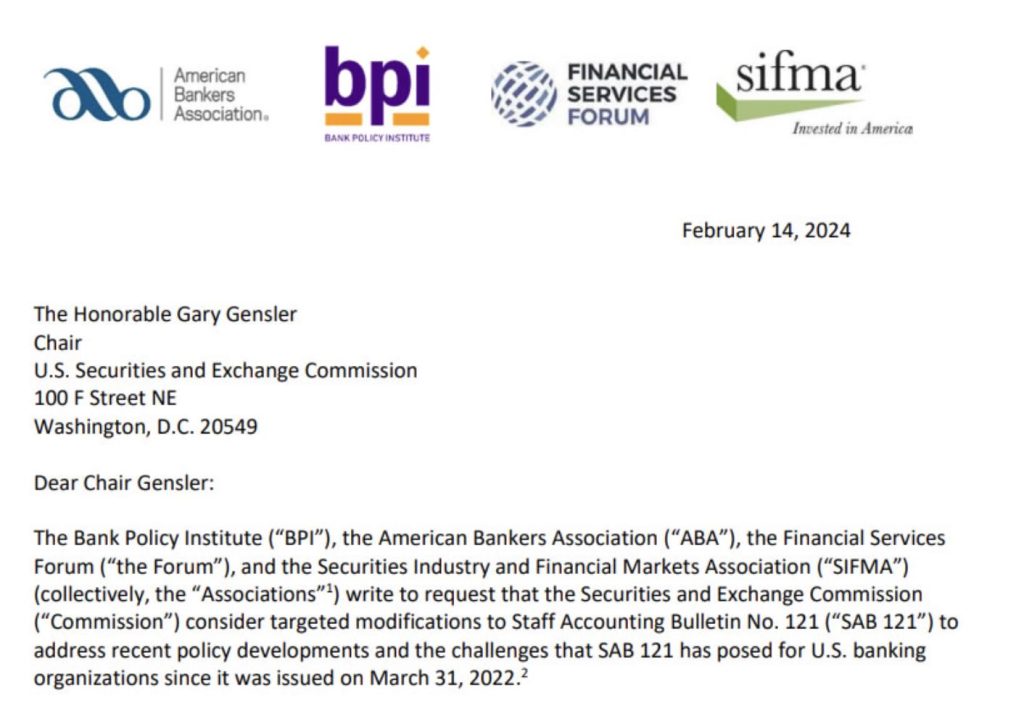The finance world stands on the brink of a transformative shift as major banks lobby the U.S. Securities and Exchange Commission (SEC) for a piece of the burgeoning Bitcoin Exchange-Traded Fund (ETF) market. This move underscores a significant change in attitude towards cryptocurrencies, once viewed with skepticism by traditional financial institutions. As these banking giants vie for a slice of the sweet Bitcoin ETF action, a debate arises surrounding the implications of their entry into the cryptocurrency space. This article for decentrahacks.com delves into the motivations behind big banks’ push for Bitcoin ETFs, the potential benefits, and the concerns it raises within the cryptocurrency community.
Table of Contents,
The Motivation Behind the Move

Big banks’ interest in Bitcoin ETFs is not merely a fleeting whim but a calculated strategy driven by several factors:
- Growing Client Demand: As cryptocurrencies gain mainstream acceptance, clients are increasingly seeking secure and regulated ways to invest in digital assets. Bitcoin ETFs, overseen by regulatory bodies like the SEC, offer an attractive avenue for traditional investors to enter the cryptocurrency market.
- Diversification of Financial Products: By incorporating Bitcoin ETFs into their offerings, banks can diversify their financial products, appealing to a broader range of clients and staying competitive in a rapidly evolving financial landscape.
- Recognition of Cryptocurrency’s Potential: The push for Bitcoin ETFs signals a recognition of cryptocurrency’s long-term potential as a legitimate asset class. Banks are keen to position themselves strategically in this emerging market to capitalize on future growth opportunities.
The Benefits of Big Banks’ Involvement

Proponents argue that the involvement of big banks in the Bitcoin ETF market could bring several benefits:
- Increased Legitimacy: The backing of established financial institutions could lend additional legitimacy to cryptocurrencies, encouraging wider adoption among traditional investors.
- Enhanced Security and Regulation: Big banks are subject to strict regulatory standards, which could translate to better security and oversight for Bitcoin ETFs, offering investors greater peace of mind.
- Market Stability: The entry of large, stable financial entities into the cryptocurrency market could potentially reduce volatility, making digital assets more appealing to conservative investors.
Concerns and Counterarguments
However, the big banks’ push for Bitcoin ETFs is not without its detractors, who raise several concerns:
- Centralization Risks: Critics argue that allowing traditional financial institutions to dominate the Bitcoin ETF market could lead to centralization, undermining the decentralized ethos of cryptocurrencies.
- Influence on Regulatory Policies: There is a fear that big banks could exert undue influence on regulatory policies, shaping the cryptocurrency market in ways that favor their interests over those of individual investors and smaller entities.
- Cultural Clash: The cryptocurrency community, known for its libertarian and anti-establishment values, may view the involvement of big banks with suspicion, potentially leading to a cultural clash within the market.
Conclusion
The push by big banks to secure a stake in the Bitcoin ETF market marks a pivotal moment in the integration of cryptocurrencies into the traditional financial system. While their involvement could bring increased legitimacy, security, and stability to the market, it also raises concerns about centralization, regulatory influence, and cultural integration. As the SEC considers these proposals, the outcome will undoubtedly have lasting implications for the future of Bitcoin ETFs and the broader cryptocurrency ecosystem. Whether this marks the beginning of a harmonious integration or sets the stage for further conflict remains to be seen, but one thing is clear: the cryptocurrency market is evolving, and big banks are eager to play a significant role in shaping its future.



